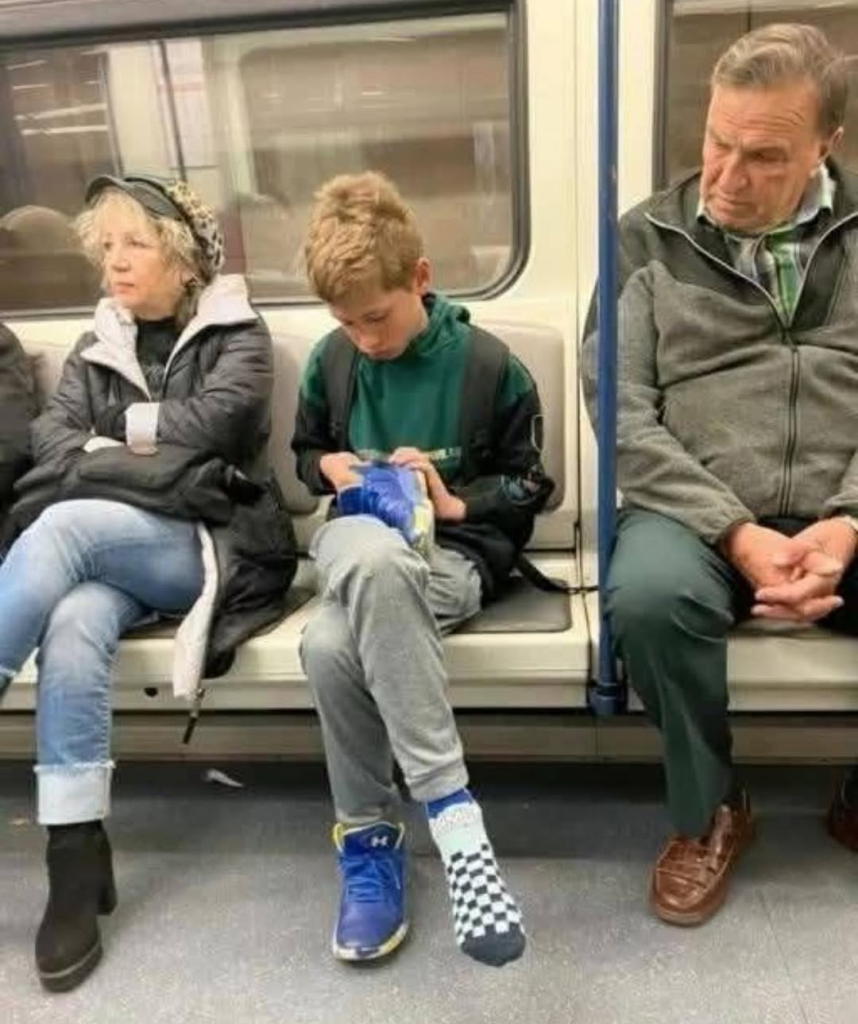The rhythmic clatter of the train on the tracks was a familiar sound, the backdrop to a thousand private journeys happening all at once. Inside the car, passengers were lost in the usual urban trance—some staring blankly out the window at the passing city, others engrossed in the bright screens of their phones, a shared silence filling the space between them. It was an ordinary trip on an ordinary day, until the doors hissed open at a stop and a man stepped aboard who broke the spell of anonymity.
He wasn’t loud or disruptive. In fact, he was quiet. But as he made his way down the aisle looking for a place to sit, a detail came into focus that was impossible to ignore: he was completely barefoot. His feet, exposed and vulnerable, met the grimy floor of the train with a silent resignation. In a world where we are so insulated, so protected, the sight was jarring. It spoke of a hardship that was immediate and profound.
As the narrator of this moment, I watched him, and I saw others watch him too. A flicker of recognition in their eyes, a brief moment of shared discomfort and sadness before they retreated back into their private worlds. It’s a common reaction in a busy city, a defense mechanism against being overwhelmed by the visible struggles of others. It is often easier to look away.
But one man did not look away.

Seated nearby was another passenger, a man who had observed the same scene. He watched the barefoot man for a moment, and you could almost see the gears of compassion turning in his mind. He wasn’t wearing flashy clothes or trying to draw attention to himself. He seemed like just another commuter. Yet, what he did next was anything but ordinary.
Quietly, he reached down. Without a word, he began to unlace his own sneakers. They were not old, worn-out shoes destined for the bin; they looked like a decent, comfortable pair of Nikes. He slipped them off his feet, and then, holding them in his hands, he approached the barefoot man.
There was no grand announcement, no performance for the benefit of the other passengers. The interaction was hushed, almost private, despite being in a public space. He leaned in and offered the shoes. The barefoot man looked up, his expression a mixture of surprise and disbelief. A quiet, brief exchange followed, and then the man gratefully accepted the gift. He carefully put the sneakers on, a perfect fit.
The man who had given away his shoes then went and took a seat, his feet now clad only in socks. He pulled out his phone and acted as if nothing remarkable had just happened. But everyone who had witnessed it knew it was remarkable. The air in the train car had changed. A simple, selfless act had pierced the bubble of urban indifference.
The man with the new shoes stayed on the train for a few more stops, his posture visibly changed, a sense of dignity restored. The man in the socks simply rode on, expecting nothing in return. For the rest of the journey, I couldn’t help but reflect on what I had seen. It was more than just a pair of shoes changing hands. It was a powerful, unspoken message that we are all connected and that we have a choice to either ignore the struggles of others or to step in and offer what we can, no matter how small it may seem. The man who got on with no shoes left with a pair, but everyone in that car who was paying attention left with a renewed sense of hope in humanity.